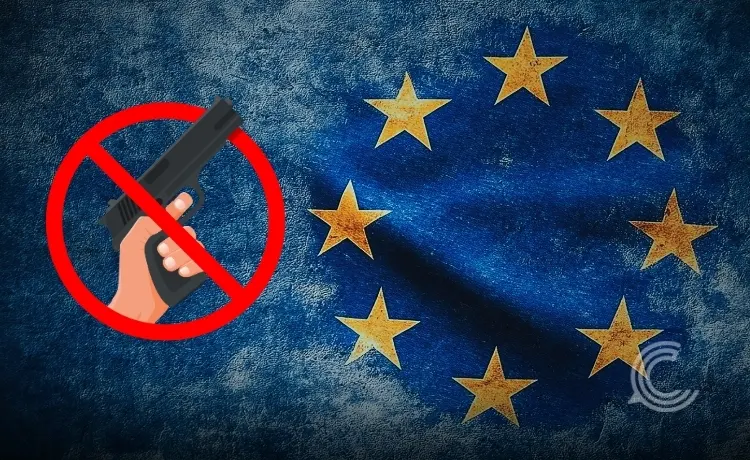EU Warns Digital Platforms to Block Porn, Weapons Amid Shein Backlash

Key Highlights–
- France accuses Shein of selling banned sex dolls and weapons online.
- EU steps in after French complaint, warning platforms against illegal content.
- Stricter digital regulations on the horizon as Shein backlash grows.
The European Union has stepped up pressure on digital marketplaces after France accused Chinese fast-fashion giant Shein of breaching EU regulations by allowing pornographic and illegal weapon sales on its platform.
EU Warns Digital Platforms to Block Porn, Weapons After Shein Backlash
The move comes as Brussels tightens oversight of e-commerce platforms under its Digital Services Act (DSA), signalling that the Shein scandal could serve as a wake-up call for how strictly the bloc enforces its new online-safety regime.
France Moves to Ban Shein Marketplace
French officials this week demanded immediate EU intervention after uncovering listings for child-like sex dolls and banned weapons on Shein’s marketplace. “The platform is evidently in breach of European rules. The European Commission must take action,” French Foreign Minister Jean-Noël Barrot told Franceinfo radio.
In response, Shein temporarily suspended its marketplace operations in France and removed all sex-doll listings globally. Its French site now displays only its in-house clothing line, a far cry from the vast mix of toys, gadgets, and homeware that once fuelled its expansion across Europe.
EU Responds but Stops Short of Suspension
As reported by Reuters, an EU Commission spokesperson stated that the bloc is “in contact with French authorities and Shein” following the complaint.
Platforms found to host pornographic or weapons-related content could be violating EU law, which “will drive the next steps,” the spokesperson added.
However, Brussels clarified that there is no plan to suspend Shein or any other platform across the EU yet, indicating a cautious approach as investigations continue.
France Ramps Up Crackdown
France has intensified its crackdown on the e-commerce site Shein, blocking over 200,000 parcels at Charles de Gaulle Airport amid allegations of illegal and unsafe products on the platform, including child-like sex dolls, weapons, and toxic jewellery. Furthermore, customs officials and consumer watchdogs are now inspecting shipments as part of a wider probe into the Chinese fast-fashion giant’s compliance with EU rules.
The move follows weeks of controversy surrounding Shein across Europe.
The French Finance Minister Roland Lescure and Digital Minister Anne Le Henanff have urged EU tech chief Henna Virkkunen to launch a formal investigation “without delay,” warning that similar risks likely exist in other member states. German retail associations have echoed the call, saying violations of EU law “must have consequences.”
Wider Concerns Over Unsafe Imports
Shein’s troubles come amid growing European unease about Chinese e-commerce platforms. Germany’s Stiftung Warentest recently found that 110 out of 162 products tested from Shein and rival Temu failed EU safety standards, citing toxic metals in jewellery and unsafe toys.
Analysts say the scandal strengthens Brussels’ resolve to make digital marketplaces verify third-party sellers and ensure that imported goods comply with EU rules, which is a core requirement of the DSA.
A Turning Point for EU Digital Oversight
Although the Chinese company has been cooperating with French and EU authorities, the timing of Brussels’ response suggests that France’s backlash has accelerated the bloc’s broader agenda for stricter digital governance.
The European Commission has already confirmed it is in contact with French officials and Shein representatives, indicating that violations involving pornographic content or weapon sales could trigger formal investigations under the Digital Services Act (DSA).
Also Read | Getty Images Loses Major UK Court Battle Over AI Image Generator
Analysts say the Shein controversy may prove to be a watershed moment for Europe’s approach to policing global e-commerce platforms. After months of criticism over lax online enforcement, the EU appears poised to use this case to assert greater accountability over third-party sellers and cross-border trade.
If the Commission proceeds with new measures, the company’s Paris fallout could mark the beginning of a continent-wide crackdown on platforms that sidestep EU safety and consumer-protection standards.



